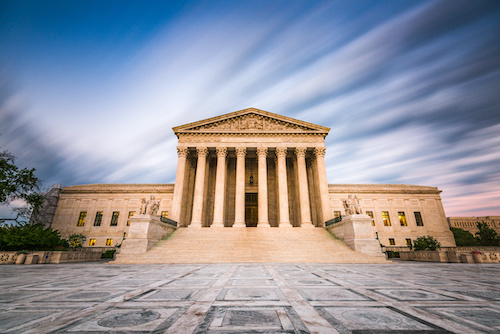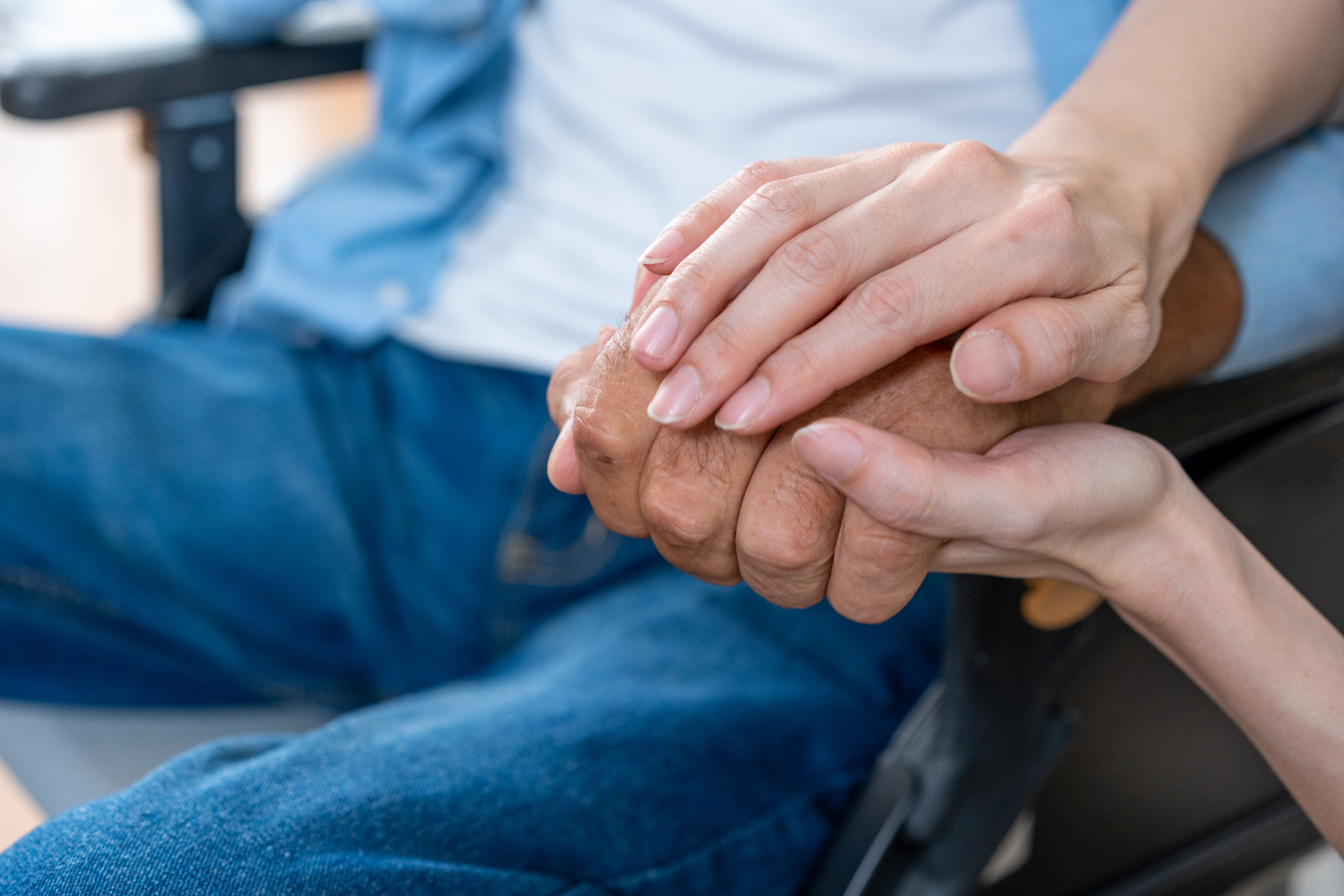Adnan Syed’s Conviction Reinstated – FindLaw
Adnan Syed—whose dubious murder conviction was the subject of the 2014 hit podcast Serial—cannot catch a break. At the request of Baltimore city prosecutors, Baltimore Circuit Court Judge Melissa Phinn had vacated his conviction on the grounds that prosecutors failed to turn over evidence they were legally compelled to provide to the defense. After 23 years in prison, Mr. Syed walked free.
Not so fast, said the Appellate Court of Maryland last week. Despite the fact that the prosecution, defense, and judge all agreed that the conviction couldn’t stand, the Appellate Court of Maryland reinstated it in a 2-1 decision, holding that Judge Phinn had violated the right of the victim’s family to attend a critical hearing in the case. So much for walking free.
That seems ridiculously unfair, you may be thinking. How can they possibly let the guy go after 23 years in jail, just to immediately say “Whoops! You need to go back to prison!”? Don’t fret; Syed won’t be going back to jail, The Appellate Court just wants to make sure that out of due respect for the crime victim’s rights, Judge Phinn dots her i’s and crosses her t’s.
The Conviction of Adnan Syed
In February 1999, the body of popular high-school student Hae Min Lee was found in a shallow grave in a Baltimore park. The 17-year-old had been strangled a month prior. Six weeks later, Syed, her classmate and ex-boyfriend, was arrested and charged with her murder.
When questioned, Syed couldn’t really remember where he was or what he was doing the January afternoon of his girlfriend’s purported murder. But the prosecution had cell phone records that placed him near the park where Lee’s body was found, and his acquaintance, Jay Wilds, testified at trial that he had helped Syed dispose of her body.
Syed was convicted of murder, robbery, kidnapping, and false imprisonment. The court sentenced him to life in prison. He was 18 years old at the time of his conviction.
Serial: Serious Journalism
In 2014, fourteen years later, the Serial podcast, hosted by Sarah Koening, called into question the facts of the case. The 12-episode investigative series was downloaded more than 100 million times in its first year, bringing widespread attention to Syed’s case. It won a Peabody Award for its “compelling, drilling account of how guilt, truth and reality are decided.”
But the podcast was more than just entertainment; it greatly influenced the trajectory of the criminal investigation that was its focus. The podcast uncovered an alibi witness, Asia McClain, who claimed she saw Syed at the Woodland High Library at the time of Lee’s death. Although McClain said she would have willingly testified in Syed’s case, Melissa Cristina Gutierrez, Syed’s lawyer, never contacted her (Gutierrez was subsequently disbarred for unrelated reasons, and passed away in 2004). Furthermore, the podcast challenged the reliability of the cell phone tower records submitted by the prosecution. The investigative series also highlighted the existence of physical evidence from 1999 that had never been tested for Syed’s DNA.
Syed Is Bounced Around in the Courts
Syed consistently maintained his innocence, even after he was sentenced. In 2010, he filed for post-conviction relief, arguing that because Gutierrez had not spoken to McClain, the lawyer had failed to adequately represent him—a violation of the Sixth Amendment. Notably, he did not bring up the fact that Gutierrez also failed in challenging the reliability of the cell phone tower records.
Based on the McClain issue alone, Syed asked for a new trial based on ineffective assistance of counsel, and the case eventually made its way to the Maryland Court of Special Appeals (later renamed to the Appellate Court of Maryland). Later, Syed added an additional claim that Gutierrez was ineffective because she didn’t challenge the cell tower evidence. In June 2016, Syed was finally granted a new trial, but before it could be underway, attorneys for the State filed an appeal arguing that he shouldn’t get one. The entire time all of this back-and-forth was going on, Syed remained in prison.
The appeal finally reached Maryland’s highest court (then called the Maryland Court of Appeals, now renamed to the Supreme Court of Maryland). First, the court ruled that while Syed’s lawyer had been deficient, Syed wasn’t “prejudiced” as a result of her conduct. In other words, the court concluded that although Gutierrez’s ignoring the McClain alibi fell below the professional standard of what lawyers should do, the evidence against Syed was still great enough that the result of the case probably wouldn’t have changed even with the alibi.
Second, the court ruled that Syed raised the issue of the cell tower evidence too late; he should have raised it when he originally raised the issue of the McClain alibi. Thus, he had “waived” his right to make a case based on it.
The court thus denied him a new trial and reinstated his conviction. The U.S. Supreme Court declined to review the case.
The Case Against Adnan Syed and New DNA Evidence
In March 2019, HBO aired a four-part documentary entitled The Case Against Adnan Syed. It revealed that later forensic tests, taken by Syed’s new lawyers and performed on the original samples taken from Lee’s body and car, did not find any traces of Syed’s DNA or fingerprints.
In 2021, Maryland passed a law empowering prosecutors the power to modify the sentences of offenders who were under 18 at the time of the crime and had served 20 years in prison.
In March 2022, the prosecution agreed to perform new DNA tests on physical evidence due to advances in genetic profiling. These tests revealed the possibility of two other suspects involved in Lee’s death—evidence that had not been available to Syed’s defense team at trial.
Prosecutors Seek to Vacate the Conviction
In September 2022, prosecutors asked Judge Phinn, the original trial judge, to vacate the conviction. They argued that in addition to the DNA evidence, there were significant reliability issues with the other evidence that had been submitted in Syed’s trial. The court scheduled a “vacatur hearing” for a Monday. The Friday before the scheduled hearing, prosecutors emailed notice of the hearing to Hae Min Lee’s brother, Young Lee. On Sunday, they connected with him by phone.
Young, who lived in California, didn’t have time to get to the Maryland courthouse in time for the scheduled hearing. The Lees’ family attorney asked the court to continue the hearing for seven days so that Young could be physically present at the hearing. Shortly before the scheduled hearing, the judge denied the request, so Young sped home from work so that he could attend the hearing by Zoom. He was successful, and the court allowed Young to make a statement at the vacatur hearing.
On September 19, 2022, Judge Phinn vacated Syed’s conviction, which gave Maryland state attorneys 30 days to either refile the case or to nolle prosequi. This concept, called “nolle pros” or “nol” for short, is essentially a legal notice that the government will no longer prosecute a case. Syed, now 41 years old, walked free while the charges remained in place. Young Lee asked the judge to stay her decision pending appeal. When she didn’t rule, Young asked the appellate court to stay her ruling so that he could argue that the court had violated his right as a member of the victim’s family to receive notice and the opportunity to attend the hearing in person.
On October 11, 2022, before the state’s deadline, Baltimore City Attorney Marilyn Mosby filed a nolle pros, concluding that the new DNA evidence on Hae Min Lee’s shoes exculpated Syed. The effect was a dismissal of the charges against Syed. Erica Suter, Syed’s lawyer, announced her intention to file a petition establishing his innocence.
Syed’s Conviction Is Reinstated
But just when it looked like Syed had won his long legal battle, the Appellate Court of Maryland stepped in.
On March 28, 2023, in a 2-1 decision, the Appellate Court of Maryland reinstated Syed’s murder conviction, ruling that the trial court had violated Young Lee’s right to notice and the opportunity to attend the vacatur hearing in person and ordering it to conduct a new hearing.
The first question was whether the nol pros, which dismissed the case, rendered Young’s appeal moot. The Appellate Court decided that it did not, reasoning that the victim’s right to attend a vacatur hearing would be meaningless if prosecutors could circumvent them by dismissing charges while an appeal on vacatur was pending. Mootness didn’t apply, it ruled.
On the merits, the court ruled as a matter of law that the Friday email and Sunday phone call before the Monday vacatur hearing were not enough to satisfy Young Lee’s right to “notice” and the opportunity to attend. The court held that, under the Maryland Constitution, Young had the right to attend in person if he wanted to.
But while Young won on this point, the court rejected his argument that he had the right to speak at the hearing, and denied his request that a victim’s representative be appointed to challenge the prosecution’s evidence. The court directed the trial court to hold a “new, legally compliant, and transparent” vacatur hearing and give the victim’s family sufficient notice to attend it in person.
Where Does That Leave Syed Now?
The Appellate Court stayed its decision for 60 days to give the parties time to decide how to proceed. Syed is a free man for now. The Baltimore City State’s Attorney Office, now led by Ivan Bates, is leaving the decision of whether to appeal up to Syed’s attorneys.
They have a choice to make. They could appeal the Appellate Court’s decision to the Supreme Court of Maryland, which would kick the resolution of this case down the road for who-knows-how-long. Or, they could ask the trial court for a do-over hearing that gives Young Lee notice and enough time to appear in person—while running the risk that the court changes its mind.
Prosecutors say the investigation into Hae Min Lee’s death is ongoing.
You Don’t Have To Solve This on Your Own – Get a Lawyer’s Help
Meeting with a lawyer can help you understand your options and how to best protect your rights. Visit our attorney directory to find a lawyer near you who can help.






